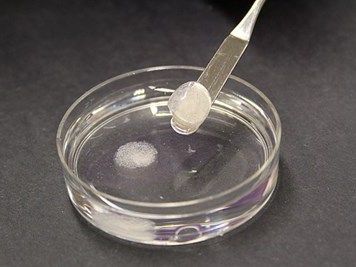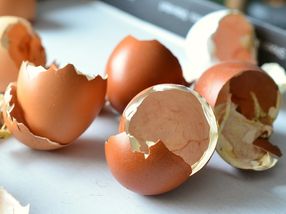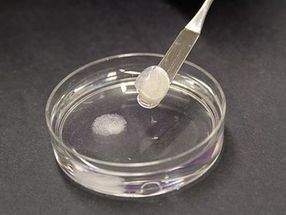Eggshells Can Help Grow, Heal Bones
Discovery Could Lead to Faster Recovery From Injury, Illness
eggshells can enhance the growth of new, strong bones needed in medical procedures, a team of UMass Lowell researchers has discovered.

symbol image
congerdesign/ Pixabay

UMass Lowell researchers have found that eggshell particles incorporated into hydrogels used to grow bone cells in the laboratory enhance the cells’ ability to harden.
Edwin Aguirre


The technique developed by UMass Lowell could one day be applied to repair bones in patients with injuries due to aging, accidents, cancer and other diseases or in military combat, according to Assistant Prof. Gulden Camci-Unal, who is leading the study.
Through the innovative process, crushed eggshells are inserted into a hydrogel mixture that forms a miniature frame to grow bone in the laboratory to be used for bone grafts. To do so, bone cells would be taken from the patient’s body, introduced into this substance and then cultivated in an incubator before the resulting new bone is implanted into the patient.
The research demonstrates that when eggshell particles – which are primarily made of calcium carbonate – are incorporated into the hydrogel mixture, they increase bone cells’ ability to grow and harden, which could potentially result in faster healing. And, because the bone would be generated from cells taken from the patient, the possibility the individual’s immune system would reject the new material is greatly reduced, according to Camci-Unal, a faculty member in the Department of Chemical Engineering, part of UMass Lowell's Francis College of Engineering.
The process could also be used to help grow cartilage, teeth and tendons, she said.
“This is the first study that uses eggshell particles in a hydrogel matrix for bone repair. We have already filed a patent for it and are very excited about our results. We anticipate the process can be adapted for use in many significant ways,” said Camci-Unal, adding that one day, eggshell particles could also serve as a vehicle to deliver proteins, peptides, growth factors, genes and medications to the body.
UMass Lowell students participating in the research include biomedical engineering and biotechnology Ph.D. candidates Sanika Suvarnapathaki and Xinchen Wu of Lowell, along with Darlin Lantigua of Lawrence. Wu was the lead author of the team’s research findings, which have been published in the academic journal Biomaterials Science and will be featured on the cover of the publication’s print edition this month.
Using eggshells to support bone growth provides a sustainable way to reuse them while advancing the technology behind these procedures, according to the researchers.
“Global waste of discarded eggshells typically amounts to millions of tons annually form household and commercial cooking. By repurposing them, we can directly benefit the economy and the environment while providing a sustainable solution to unmet clinical needs,” Camci-Unal said.
This is not the first time Camci-Unal has used an unconventional approach to design new materials for biomedical engineering. Last year, she and her team used the principles behind origami – the ancient Japanese art of paper folding – as inspiration to build tiny 3D structures where biomaterials can be grown in the lab to create new tissues.
Most read news
Organizations
Other news from the department science

Get the food & beverage industry in your inbox
By submitting this form you agree that LUMITOS AG will send you the newsletter(s) selected above by email. Your data will not be passed on to third parties. Your data will be stored and processed in accordance with our data protection regulations. LUMITOS may contact you by email for the purpose of advertising or market and opinion surveys. You can revoke your consent at any time without giving reasons to LUMITOS AG, Ernst-Augustin-Str. 2, 12489 Berlin, Germany or by e-mail at revoke@lumitos.com with effect for the future. In addition, each email contains a link to unsubscribe from the corresponding newsletter.


























































